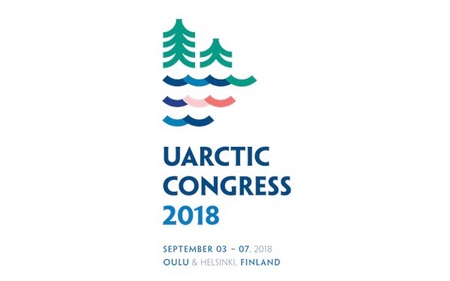Arctic Domus team members from the University of Aberdeen, Robert Wishart, Dmitry Arzyutov, and David Anderson are panel convenors at the upcoming UArctic Congress in Saint Petersburg, Russia, 12-16 September 2016.
This will be the first University of the Arctic Congress hosted by Saint Petersburg State University. Abstracts may be submitted through the UArctic website extended until 17 April 2016.
Early registration is now open up until 31 May 2016.
The University of the Arctic (UArctic) is a cooperative network of universities, colleges, research institutes and other organizations concerned with education and research in and about the North.
Panel 3.1 Arctic Human-Rangifer Communities: Vulnerability, Resilience, Adaption to Global Changes
Principal Convener: Robert Wishart (University of Aberdeen) and Konstantin Klokov
The world of reindeer herders and wild reindeer hunters is an holistic system incorporating indigenous people of the circumpolar North and their landscapes. Reindeer form the centre of this social and natural unity; helping the indigenous peoples of the North to subsist and maintaining their spiritual life. In Europe, their communities are represented by Sami reindeer herders, in Asia - by the nomadic communities of the tundra reindeer herders and wild reindeer hunters, in Alaska and Canada – by caribou hunters. However, the stability of this relationship is threatened by a variety of external factors related to global climate change, large-scale mining projects, the development of tourism and its infrastructure, as well as information technologies. Even though industrialism and acculturation often brings positive changes for reindeer herders and hunters, the transformations of traditional culture and knowledge often results in commodification and neotraditionalism. On the other hand, indigenous peoples often adopt new technologies and life projects in such a way that they re-employ or even subvert the patterns of the dominant society giving them new possibilities for self-expression. Historically, many of these changes and adaptations can be read in the archaeological record.
The session will be focused on following questions:Human-rangifer co-evolution in the Arctic.
- Old and new challenges in reindeer herders and hunters societies in the Circumpolar North.
- Creativity and adaptation of human-rangifer communities to rapid changes of social and cultural contexts.
- Field research of human-reindeer relations in the Arctic: new themes and approaches in the analysis of socio-cultural contexts.
- The impact of innovations on human-reindeer-landscape relations.
Panel 3.4 Identity Politics: A Conversation between Academic and Local Knowledge in the North
Principal Convener: David Anderson (University of Aberdeen) and Dmitry Arzyutov (University of Aberdeen)
In this session, we invite papers investigating how late 19th century and early 20th century ethnographic concepts have played an important role in how Northern peoples have come to be known as sovereign peoples, and thus become either the objects of governance or the subjects of self-government. We invite papers from all regions of the circumpolar North which examine the politics of naming – and renaming - peoples, collective expression, and how juridical subjects are created. The panel will feature several contributors investigating the influence of etnos’ theory in the Siberian Arctic both in the Soviet period and in the present day. We would welcome contributions on the political influence of other ethnographic concepts such as ‘band’ and ‘tribe’, the Steward’s idea of an ecological ‘cultural core’, the distinction between ‘status’ or ‘non-status’, or the concept of an urfolk. We are especially interested in the contrast between ethnographic/legal ways of seeing a people and the way that identity is conceived locally in local languages.
http://www.arcticdomus.org/events/9621/


